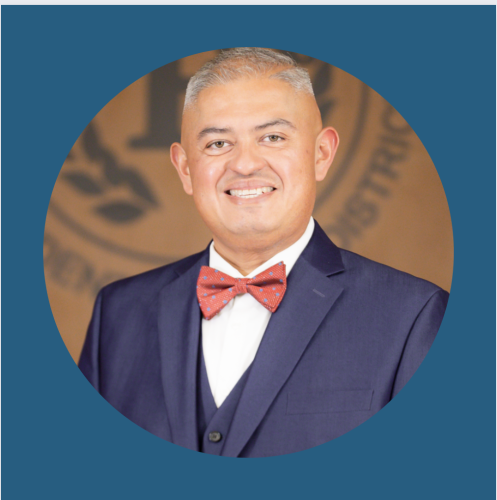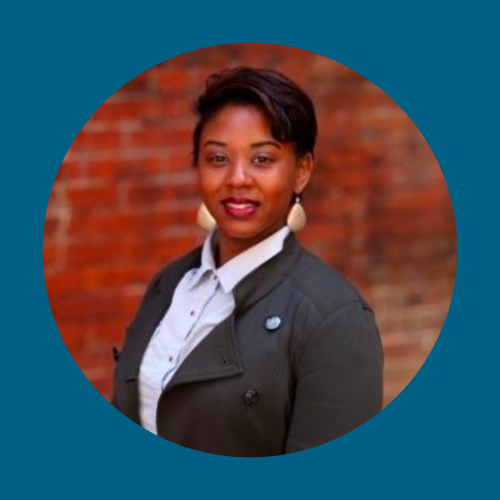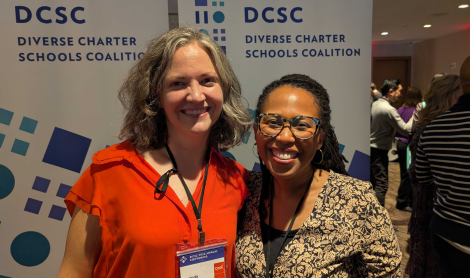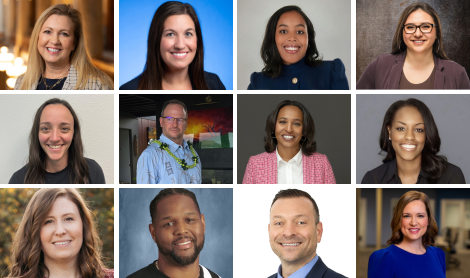Across the country, the dual challenges of an ongoing pandemic and racial inequities continue to impact our schools. But educators, school leaders, and authorizers across the country have been working to meet this moment.
Our 2022 Change Makers are people, in and around authorizing, who are working and persevering to meet this moment in education. Stay tuned for more change makers being added to this post throughout the month of December.
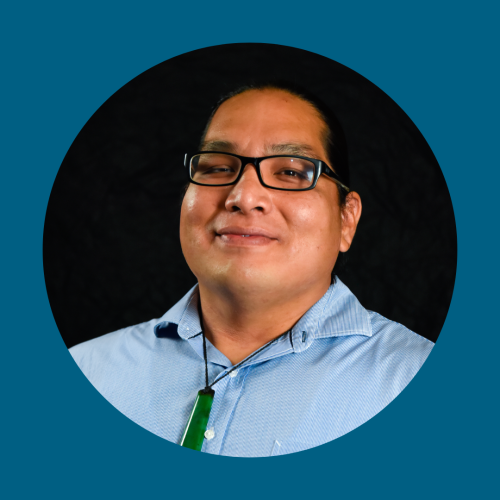 Anpao Duta Flying Earth
Anpao Duta Flying Earth
Executive Director, NACA Inspired Schools Network
Did you find education or did education find you?
Education found me. I was raised by two educators who believe that our community and culture is genius. I was brought up immersed in our culture AND with a drive to obtain success in education/schooling. I didn’t think I would be an educator, teacher, or administrator but I found a school and organization that aligned with my values and sought to center community as a lever for change and sustainability. I am carrying on the work and intentions of my family through this work.
Tell us a change you’ve been a part of.
In 2006, I was part of the founding team of the Native American Community Academy (NACA). We were guided by a community vision that set out to incorporate academic preparation for college and career with a grounding in students identity through culture and language as well as a foundation that centered on holistic wellness. We did this by organically integrating cultural teachings into the classroom while being mindful of conventional educational standards and benchmarks for student development and educational growth. We created a mode of education for Indigenous communities where identity and culture were not sacrificed for educational outcomes. We demonstrated that both were important and, even more important, complimentary in education.
What change are you looking forward to in education or your community?
My grandmother’s and mother’s generations set in motion important changes and precedents that my generation needs to take and continue. The students who go to the schools in our network are experiencing an education that the creators of them have not themselves experienced. These young people will be able to iterate into a different education that will be possible because of their experience. I’m excited for this
Dr. Eduardo Hernandez
Superintendent, Edgewood ISD
Did you find authorizing or did authorizing find you?
I definitely found authorizing through Senate Bill 1882. The need I had to change the learning landscape of our community in a bold way led me to envision innovative partnerships with non-profits and higher education institutions that would be able to provide unique learning models that our community needed to open doors that would provide life changing learning for our community. Holding everyone accountable for the positive changes our scholars and students deserve is where great authorizing turns dreams into reality.
Tell us a change you’ve been a part of.
I feel like I am in a constant state of moving through change and it feels challenging and exciting! One of the most impactful changes I continue to be a part of rewriting our EISD story. The innovative journey has been tough but through platicas, town hall meetings, Facebook live sessions, weekly staff communication and 6am face to face one on one meetings with staff and community members we are beginning to change the narrative one conversation at a time.
What change are you looking forward to in education or your community?
I am looking forward to the continual changes in education around mental health awareness and school safety. As resilient as our staff, families, and students are, we will continually need to make sure they are known and feel valued. Empowering our students to find their voice and teaching families and students how to navigate the educational system is a commitment I will stay focused on. People matter and the work we have ahead of us to educate our students academically is just the starting point. Teaching them how to be vulnerable, honorable, prideful, empathetic, hopeful and kind that’s the real work.
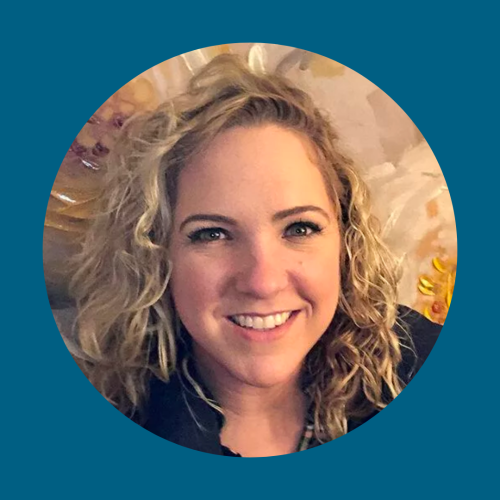 Erin Anderson
Erin Anderson
Director of Charter School Authorizing, Osprey Wilds
Did you find authorizing or did authorizing find you?
A little bit of both. I love teaching and learning, and started my career in museum education (including at the National Museum of American History in Washington, DC). I transitioned into environmental education, which is how I got to Osprey Wilds in 2012. Educators in informal settings do a lot of evaluation, not unlike authorizers, so in addition to an MAT I also had a lot of experience with assessing the important things that aren’t measured by standardized tests—like environmental literacy.
Tell us a change you’ve been a part of.
Osprey Wilds began authorizing charter schools in 2003 and has been accepting applications for new schools that entire window. In that time, we have received very few applications from founding teams whose members are predominantly Indigenous or people of color. While this is in line with statewide data, we know there are huge benefits to students, systems, and structures from more diverse school leadership—especially given the divergent educational realities and inequitable student outcomes that continue to contribute to the effects of injustice and uphold white supremacist structures.
In response to this data, in 2019 Osprey Wilds began prototyping an incubator for a charter school leader of color. The incubator is designed to be an equitable learning partnership that will result in a great new school for learners (or a well-rounded leader of an existing charter), provides an emerging charter school leader of color with a supportive, salaried startup journey, and strengthens Osprey Wilds’ (or another authorizer’s) charter school portfolio.
Osprey Wilds’ authorizing mission is to ensure quality academic and environmental literacy outcomes for Minnesota students through effective authorizing; we see this as a strategy to produce those great outcomes.
What change are you looking forward to in education or your community?
I am heartened by the work of Authorizing for All, a grassroots effort led by authorizers across the U.S., to push forward anti-racist authorizing practices through the lens of design thinking. It’s very exciting to me that so many people want to think about how to uproot and interrogate our work in a way that is meaningful to schools and responsive to families.
Locally, I’m so deeply moved by the ways that schools have served families throughout the last two years through constant change and community-wide stress and fear. The amount of innovation and evolution that has happened is truly remarkable, and I cannot imagine that school will look the same after all this. I know necessity is the mother of invention, but I am hopeful that people will evaluate what’s working best for students and keep those things in play.
Dr. Kelli Peterson
Founder & Principal Consultant, The Ed.ucateD Approach LLC
Did you find authorizing or did authorizing find you?
Interesting… I would say it followed me and I found it! When I served as an Assistant Principal at a charter school in Nashville, it was then that I learned what an authorizer actually was. Carol Swann, (past NACSA Leader), at the time used current school leaders as members of the charter application evaluation team. I had the opportunity to serve as a member of the evaluation team for two years. Being exposed to the charter application process exposed me to authorizing and I became interested and intrigued, but continued my school leader pathway. Fast forward to my next role as a School Leader in Atlanta and it was there that made me want to be on the authorizing side, as while I knew my school was a better option for students than their district school, I knew it was not the best option. It was then that I wanted to be a part of the decision to determine which schools open and were truly ready to open in order to be an actual high quality option for students and families.
Tell us a change you’ve been a part of.
While serving as the Assistant Superintendent at the Louisiana Department of Education, I had the opportunity to revise the State Charter School Application and codify best practices and equitable practices within Policy. It is one thing to have the opportunity to do the work, but I wanted the work to last beyond me and as a result, I added our updated charter application questions, requirements and process practices in the Louisiana State Board of Secondary Education Charter School Policy.
What change are you looking forward to in education or your community?
I dream of an education system that acknowledges, recognizes, and celebrates historically excluded populations. I dream of an education system that educates students on the lives, experiences, and contributions of historically excluded populations. I dream of an education system whose textbooks speak in the voices of historically excluded populations, acknowledging the falsified and deficit perspectives that we have become accustomed to accepting. The education system in the United States has been used to colonize and civilize populations. I look forward to education being a system that values truth, a system where we facilitate learning by providing students with factual information and allow them to critically think and apply reasoning strategies to develop their own authentic opinions, beliefs, positions and conclusions. A system that intentionally embeds all students’ cultural identities so that they do not have to assimilate to the majority to feel accepted.
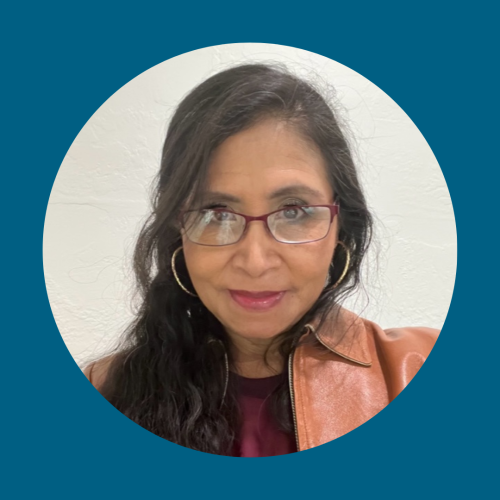 Johanna Medina
Johanna Medina
Assistant Director of Strategic Development, Arizona State Board of Charter Schools
Did you find authorizing or did authorizing find you?
I would say that authorizing found me. My career in education started in 1997 when I taught spoken and written English to adults through a non-profit in Arizona that supports communities with social services. From there, I continued to pursue opportunities to work in charter schools as a teacher, curriculum specialist and school principal. During my experience as a school principal, it was my mentor that encouraged me to apply for a position in authorizing and made sure to remind me that as authorizer I could still make a difference for the students I was currently serving. At the time, I was concerned that being in authorizing (a government agency position) would be stifling, restrictive, and repetitive. I spoke with other colleagues that had worked in this field and they mentioned that although the work at times can be those things, it was also ever-changing, creative and innovative. In the end, I truly appreciate the nudge or, better yet, the hard push my mentor gave me 11 years ago.
Tell us a change you’ve been a part of.
When I joined the Arizona State Board of Charter Schools, the charter law and our first schools were still in their adolescent stage of 16 years. It has taken creative and bold minds, both past and present staff, to take our 500+ charter schools and move them towards performance. Having been with this authorizer for nearly 11 years, it is difficult to choose which change I have been a part to highlight. When I started we had a team of 7 staff members and I was involved in almost every aspect of authorizing. I would say that some of the major changes I have been a part of fit into two categories. One is an important category of how do we improve our portfolio while maintaining the balance between accountability and ensuring we honor charter autonomy. The second is creating a culture within our authorizing agency that fosters and supports others to voice their concerns and celebrations and to be heard.
In the first category, I was a central part in ensuring the new charter application process demonstrated both rigor and capacity through implementing capacity interviews for the new charter applicants that submitted in 2013. Since then, those capacity interviews continue to be essential in determining the capacity of the leadership but also allowing those leaders the opportunity to demonstrate their capacity through verbal dialogue versus only viewing an applicant based on their application responses. As we continued to approve quality new charter applicants, we knew that measures were needed to determine the performance of our new and renewal charters. In 2012 through 2014, I was a part of developing the original academic and operational frameworks. Since then, I, in collaboration with our leadership, have continued to update and revise those frameworks.
With regard to the second category, I believe that if you don’t feel you have a sense of belonging in an organization you must bring your own sense of belonging to it. For that reason, a change I have been a part of is creating a diversity, equity, inclusion and belonging committee that presents to our staff monthly on various topics and strategies. Our purpose is to create and grow an inclusive culture within our agency and develop a space together that is safe but also allows us to be heard. The next step will be to take our thoughts and put them into action.
What change are you looking forward to in education or your community?
Parents are the gateway to better understanding what a quality school is. They are the ones that have entrusted teachers and school principals to instruct and keep their children safe. However, we rarely speak to the parents directly or ask them what can be improved or changed overall. I look forward to engaging parents and other community stakeholders in advancing our practices and assisting us to better education for all students in Arizona.
Vashaunta Harris
Equity Consultant and Impact Coach, V. Harris Enterprises
How did you find your way to authorizing ?
It was kind of a journey. I started as a teacher with Teach for America in Baltimore at Transformation Schools, which is basically the same as a turnaround school. From there, I went into a Charter Management Organization and that’s really where I got the first taste of what the charter movement was about from an administrative standpoint. After that I went back into a district setting with D.C. public schools.
When it was time for me to move to South Carolina, I had two options: a virtual network option and a charter authorizer option. From a mission standpoint, where I felt more mission aligned, I landed in the charter authorizing district. So the two components, having been a director of operations for charter schools, and then coming back around to the authorizing side, wasn’t a straight path, it was more of a journey.
Tell us a change you’ve been a part of.
NACSACon 2021, which was virtual, was really the impetus. John Carwell was tapped to do an affinity group for authorizers of color and he asked me to assist him so there would be both the male and female perspective, as well as the more experienced perspective versus someone like me, who was newer to authorizing. That was really the catalyst for what is now the EnTere Ed Collective. We are now a collection of about 93 authorizers of color across the nation and we’re working on answering what that really looks like for the future.
To go from an affinity group with just a couple folks at a virtual conference, to now an official community that has plans to provide some professional development and do some other things as a group is really the biggest change from the last year that I’ve been a part of.
What change are you looking forward to in education or your community?
I’m looking forward to answering the question, “What does it mean for kids?” How do students get an even better education now that we as adults are learning more, researching more, and understanding more about what is working and what are challenges in our schools.
I say all of that to say, NWEA reports have come out, annual reports are posted in South Carolina, my own state and community, and I don’t think it’s a surprise to any that we are all further behind than where we were pre COVID, but I will also say that I don’t know that we were in a great place before COVID. It’s a nice excuse, but we’ve needed to elevate education for many years before COVID hit. I think COVID put a laser light focus on what needed to happen to make that shift.
I’m excited to see the work that A-GAME is doing out of the National Charter School Institute, to really help authorizing districts think even more deeply about how charter schools can prove they are doing right by kids in addition to the already standing accountability systems.
I’m excited to see schools do a lot more surrounding financial literacy and making sure high schoolers, going on to whatever they want to go onto, know how to make their education applicable to life and how to be a solid adult. I’m also excited to see where mental and emotional support is going for teachers, adults, and kids. Overall, I’m excited to see how we can elevate the education space.
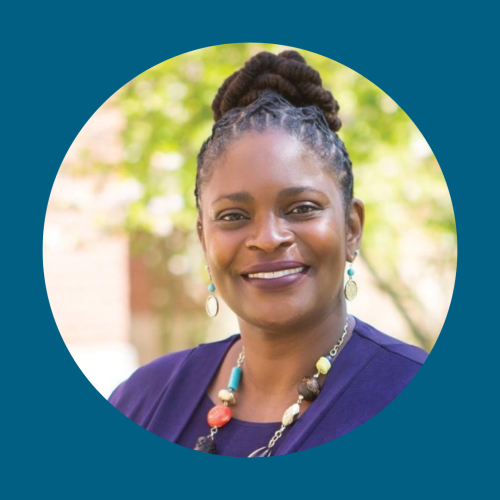 Dr. Michelle J. Walker-Davis
Dr. Michelle J. Walker-Davis
Executive Director, DC Public Charter School Board
Did you find authorizing or did authorizing find you?
This role found me, but if I reflect on the totality of my educational experiences, it makes sense that I’ve found myself leading the DC Public Charter School Board (DC PCSB). DC PCSB is the sole authorizer of public charter schools in our nation’s capital.
After completing my education, I considered many career paths, but I always found my way back to education. At my core, I had an interest in becoming a teacher and eventually moved into education leadership.
My roots were first planted in the “choice sector” where I worked for an organization dedicated to helping Black families find special education options and services for their children, specifically Black males.
The organization raised funds so that these males could attend historically Black independent schools in and outside of NYC (e.g., parochial school, Boarding school) and was primarily focused on raising money for families to have a choice in education. This is what got me interested in school choice and education policy and leadership.
My energy was sparked by giving Black families a choice about their child’s education and being a part of the process to help them navigate that.
Additionally, teaching at a high school in Harlem, NY helped me to not only gain classroom instruction experience, but it helped me hone in on education policy as a key lever for change. From that experience, I was able to eventually find my way to Washington, DC where I worked for the DC government in the Chief Financial Officer’s office and later the DC mayor’s office. In DC I also gained experience with the traditional sector in the DC public schools. Working on policy issues was extremely rewarding because my work ensured that Black and Brown families had access to high quality programs.
Authorizing has truly come “full circle” from where I began in terms of wanting high-quality choices, access, and opportunity for Black and Brown children.
As an equity leader, it makes sense that I’m now in authorizing where we can both increase access and opportunity through our accountability and oversight efforts. We do our best to create policies and conditions that allow teachers and school leaders to do their best work – educating students.
Tell us a change you’ve been a part of.
I’ve had my hand in several changes but there are two significant ones that come to mind—they are interrelated. Prior to taking this role , I worked with St. Paul Public Schools in Minnesota where I did racial equity transformation work with the school district. This profound work involved thinking about and repositioning an entire school district to focus on equitable outcomes for all students. It was important to execute this effectively because we were one of the first school districts in the state to adopt a racial equity policy in the early 2010s. The policy, approved by the school board, sought to improve outcomes across multiple areas – academics, human resources and operations,I’m proud of the work I led and it has been at the foundation of how I’ve shown up as executive director at DC PCSB.
Early in my tenure at DC PCSB, I launched an ambitious process to develop a strategic plan. The plan is grounded in the School Reform Act and our Race, Equity, Diversity, and Inclusion (REDI) commitments,, and represents an important evolution in the role, function, and purpose of DC PCSB. I’m proud that we’re one of a few authorizers that has an established REDI commitment in the country. Our Strategic Roadmap (what we call our strategic plan) is our “north star” and guides our work in three strategic priority areas: Excellent Schools, Enduring Partnership and Effective Organization.
This Roadmap, the first of its kind for DC PCSB, is how we’re holding ourselves accountable as an organization and ensuring that we achieve our vision that every DC student receives a quality education that prepares them for lifelong learning, fulfilling careers and economic security.
What change are you looking forward to in education or your community?
The change I’m most looking forward to in education is DC PCSB’s Revised Accountability Framework. We are shifting our accountability framework to make sure we’re setting a higher bar for all students and highlighting disparities to ensure we remain focused on outcomes for students who have been farthest from opportunity. We are taking some of the measurements we have been using in our previous framework – but combining it with the feedback we’ve received from the public, school leaders, and experts – to develop a tool that will better help us shine a light on equitable outcomes for all students.
This new framework will allow us to have a more robust dialogue around how we’re serving DC students and how other parts of our society can support families. It will also allow us to lean into best practices that schools can implement to better serve children. We quickly learned during the pandemic that schools are more than places for learning—they’re hubs where students receive healthcare, meals, mental health and emotional support and much, much more.
The pandemic taught us that we must recognize what is shifting and changing in various sectors like healthcare, housing and social services because it greatly affects the work we do. There’s also been a huge concern over safety—as we’ve recently seen an uptick in violence between, among and toward our students. So, through our Strategic Roadmap priorities, we’re ready and prepared to partner with other industries to do the work that will help influence change and support students and families. Schools should not have to do it all alone.
